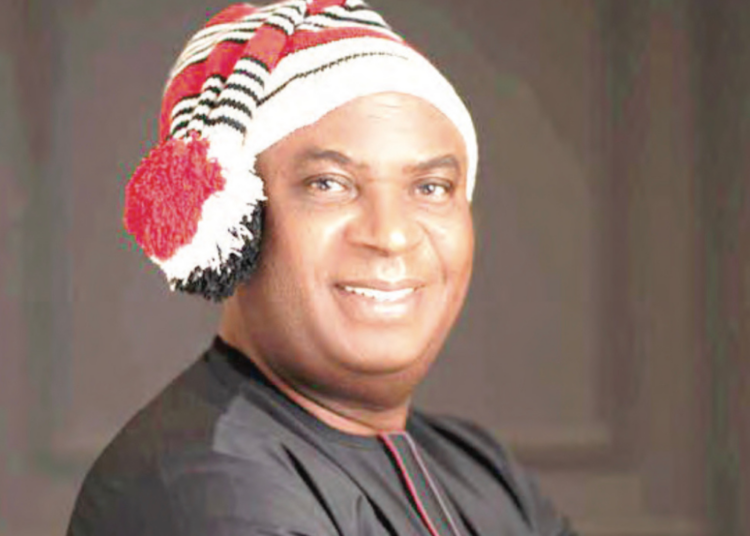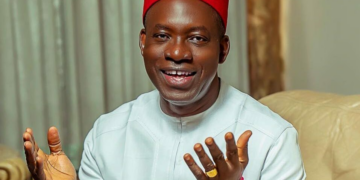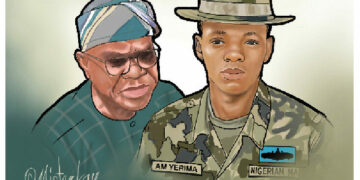Sir, you are a journalist with a print media background, but after your retirement, you branched off into broadcast; what informed your decision?
Yes, apart from journalism, I have also ventured into other areas of business; I also make bottled water. Besides, as a print journalist, I had no idea of radio, but I am there now.
After several years in public service, you have retired, but apparently not tired; what plans do have now you out of service?
I have a mega project and the project starts from three visions; the vision is on three legs: the first leg is the radio with 100 percent Igbo language; we are trying to make our children learn Igbo language. Zik FM stands on three legs; the first leg is the radio station, which is 100 percent Igbo programming.
Why 100 percent Igbo language radio?
We are inspired by the threat of the decline of Igbo language and the publication by the UNESCO that in 50 years Igbo language will be amongst some of the languages in the world to go into extinction, so we decided to stop that decline and decided to bring young Igbos and other people into speaking Igbo language, because I believe that our identity is defined by our language.
An Englishman is an Englishman because he speaks English; a Chinese is a Chinese because he speaks Chinese. So, language is the identity. The Efik man is an Efikman because he speaks Efik; that is the true definition of who we are. And God created us into languages; He did not make a mistake.
And we also believe that if a child reasons in his native language, he reasons deeper than if he is reasoning in a foreign language, and because of that we have undertaken to ensure the people begin to speak Igbo language again, so that Igbo children all over world should also have the opportunity of learning the language.
And so, that is why we launched the radio station to support and to enhance further learning of the language and for the promotion of Igbo culture. We have also proposed to have an Igbo village (Ani-Igbo). The Igbo village is going to be situated on a 50-70 hectares of land that would have an Igbo library, Igbo museum, Igbo kitchen, Igbo cuisine, a four-star hotel and hostel for students on the one side. So it is going to be a resort.
And on the other side of it, the rest of the landscape will be for Igbo land stage and Igbo land falls, typical Igbo hill, typical Igbo forest, including the evil forest, a typical Igbo stream and lake, and a typical Igbo shrine. Then we will have all kinds of trees, forest and shrubs that will represent the typical Igbo environment.
So what we are trying to create is a physical place representing the entire Igbo cosmology, belief system and culture. Once you come to that place (Ani-Igbo), it is only Igbo that will be spoken. It’s either you speak Igbo or you use sign language.
Is this not a kind of segregation?
It’s not segregation. If you go to the French Village in Badagry, that’s what they do. So, students of linguistics who want to learn Igbo language can come in there, stay in the hostel, have their lectures and we will provide people who will teach them the language at different levels.
Children can come on excursion and learn proverbs and all that. Movie makers can come in because having the Igbo vegetation, the true Igbo landscapes and land falls, they can have their movies there; so it will be a village for movies like the Nollywood, a conference centre, a retreat centre because we will have auditoriums and halls.
You a retired professional; how do fund the project?
It will be a public/private partnership. We are already speaking to the government and government is going to be part of it. We are also talking to people; there are people who are ready to invest in it. People can invest there to make their profits.
So since it’s strictly Igbo project, how will outside investors come in to grow the business?
Non-Igbos can invest there as a business. You can come and build a hotel there, but the hotel will be designed with Igbo architecture. So everything there will represent Igbo language and culture.
Isn’t that discrimination?
No, it’s a promotion of who we are as Igbos. So if you come there you must try to speak Igbo; that is it. People from abroad, from other cultures, including the whites, can come and learn other people’s language and culture. So, that is the second leg.
The third leg is to assemble a group of Igbo engineers, technologists, anthropologists, historians, philosophers, linguists, broadcasters, and Igbo journalists; bring them together to produce a complete Igbo lexicon for the teaching of physics, chemistry, biology and digital technology.
We have gone far with the issue of translation into religion and all that, but setting a lexicon, a full body of words representing phenomena and objects in science, we are still very low on that. There was an attempt to create analytical 100,000, millions, a billion, etc. Some work has been done, but we need to do more on that, so that it will be easy to really guide people on how to teach and reason in Igbo language without the limitations of grammar and words.
How far-reaching will it be to attract Igbos all over?
In fact, that is why we are not focusing on states; it is the ethnic and cultural emphasis.
How centrally located will this project be in order to achieve the purpose of rallying the Igbos?
Every spot in Igbo land is central that is the way we look at it. It could be in Anambra, Ebonyi, Abia, Enugu, Delta, Imo; it could be anywhere. There are parts of Akwa Ibom that speak Igbo; we can locate it there. There is part of Benue that speaks Igbo; we can go there. There is part of Rivers that speaks Igbo. We are talking with some communities and governments, once we get a land for it, we will start, but, meanwhile, the radio station is in Umuahia and we are streaming, and very soon we will begin to stream across all Igbo families across the world such that each family will have the opportunity to allow its children the opportunity of speaking Igbo at least in two slots of 30 minutes every weekend when they are at home, through the streaming method.
We already have started Nkuzi-Igbo for adults, and we will soon start Nkuzi-Igbo for children learning how to speak Igbo. It is only during that time – because the children are already weaned in English language – that we will introduce English to tell them the meaning of what we speak in Igbo; that is the only time English would be spoken on the radio station.
From the picture, it’s a very big project; do have cash or sponsors?
Well, I am a retired person. For the radio, I have invested all my entire entitlements, my benefits. I put them there because you can’t speak without doing. So, I have put them there and the radio is up and running – just to show people that this is not just about a wish, but a determination, and I am ready to work on it till the rest of what remains of my life. And I believe whatever I don’t realise, those coming behind me would one day realise them.
How long have you been nursing the vision?
For 15 years, I have been thinking of it. As soon as I retired I felt this is the time to initiate it. It’s a life-long project and I am determined to pursue it.
Sustainability plan, how is the picture like?
For now, it has a limited ownership and we are first trying to expand the ownership of the radio itself, and then we begin to create the model. When we finish creating the model for Ani-Igbo, the second project, then people will buy into it and then the ownership will spread and more capital will come, and we begin.
As soon as we are able to get that, then the issue of getting people together to produce the lexicon – the complete Igbo lexicon – will begin.
How long has the Radio aspect been in existence now?
We started on December 19, 2022, so by December 2023, we will be one year. The level of acceptability is overwhelming because our phone-in programmes are jammed on a daily basis because people never believed that it’s possible to run a 100 percent Igbo programming radio station.
How about programmes varieties – so as not make the radio so monotonous?
The diversity of our programmes is so much and unimaginable. We have nutrition, security, news, Igbo philosophy, praise and worship. On Sundays, we transmit Catholic mass; in fact, Easter 2023, the Catholic Mass from St. Peters, Umuahia, was watched by some of our people in Washington, Baltimore, in the United Kingdom, London. We were able to transmit the mass live to them in Igbo.
Any plans to add the TV aspect to it?
Yeah, but we are streaming, we are also beginning to stream with videos, and that is why we are able to teach Igbo on television as we go into the full streaming. When we get some more money, we will like to get the TV licence.
How are you enjoying your retirement?
Well, like I told my children, this is the sweetest part of my adult life because I am no longer hostage to deadlines and all that; I choose what to do, but still, there’s some level of stress because you have to think of diesel, petrol and others, but overall, I am enjoying myself. I feel very happy.
v





